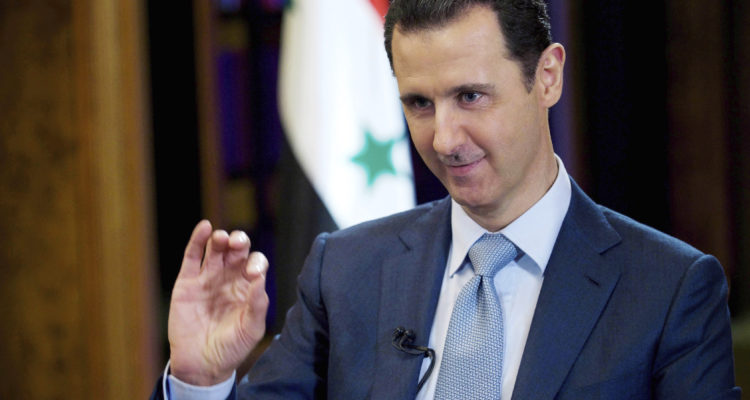Assad says that Trump is showing “complete transparency” in speaking of U.S. intentions to maintain control of Syrian oilfields.
By World Israel News Staff
On the heels of U.S. President Donald Trump’s decision to pull American troops out of his country, Syrian President Bashar Al-Assad has called Trump the “best American president” for his “complete transparency” about intentions to maintain control of Syria’s main oilfields in Deir al-Zor province, reports Reuters, citing an interview given by the Syrian leader to state television.
Even as Trump heralded his move to pull nearly all U.S. troops out of the “blood-stained sands” of Syria, he has said that he is intent on protecting the oil fields.
“We’ve secured the oil, and, therefore, a small number of U.S. troops will remain in the area where they have the oil,” Trump said last week while discussing the pullout of all but 200 to 300 U.S. troops in Syria.
“We’re going to be protecting it, and we’ll be deciding what we’re going to do with it in the future,” the U.S. president added.
American troops have begun deployment in Deir al-Zor province in coordination with the Kurdish-led Syrian Democratic Forces (SDF) “to increase security and continue the fight against remnants of Islamic State,” a U.S. military spokesman said on Thursday, according to Reuters.
In the interview with Syrian state television, Assad reportedly said that Trump’s decision to keep a small number of U.S. troops in the Kurdish-held areas of Syria shows that Washington is a colonial power.
Assad predicted that the U.S. soldiers would be forced to leave his country once Syrians resist their occupation as in Iraq, but added, according to Reuters, that Syria could not stand up to the United States and that ending the presence of American troops on Syrian soil was not achievable soon.
Israel has expressed concern over the U.S. pullout from Syria, worried about the fate of the Kurds and also over the expectation that Iran will try to exploit the vacuum to increase its entrenchment in Syria.
AP contributed to this report.





